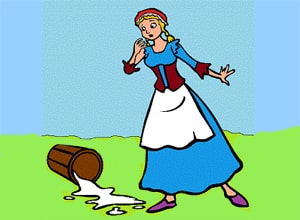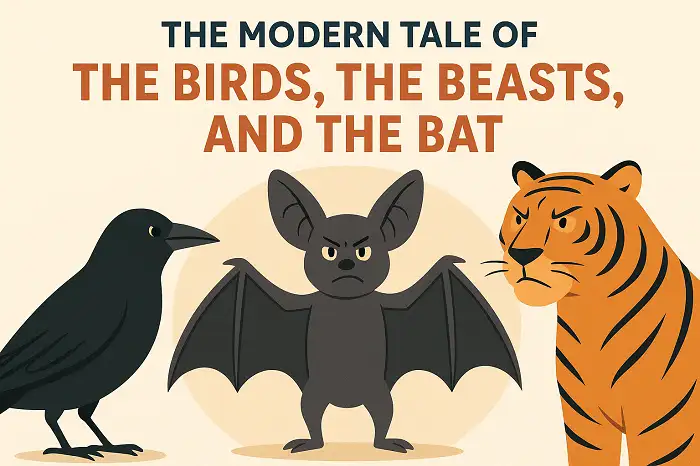The Milk Woman and Her Pail to learn English with short fairy tales from Aesop's fables with a podcast and vocabulary practice Source: Gutenberg Project at www.gutenberg.org https://www.youtube.com/watch?v=G3uNYSQWAFo A farmer's daughter was carrying her pail of milk from the field to the farmhouse, when she fell a-musing: The money for which this milk will be sold, will buy at least three hundred eggs. The eggs, allowing for all mishaps, will produce two hundred and fifty chickens. The chickens will become ready for the market when poultry will fetch the highest price, so that by the end of the year I ...
Home » English Short Stories » The Milk Woman and Her Pail – English Fairy Tale

The Milk Woman and Her Pail – English Fairy Tale
Updated: by Dr. Mohammad Hossein Hariri Asl
Time to Read: 2 minutes | 352 Views | 2 Comments on The Milk Woman and Her Pail – English Fairy Tale
Share This Post
About the Author
Dr. Mohammad Hossein Hariri Asl is an English and Persian instructor, educator, researcher, inventor, published author, blogger, SEO expert, website developer, entrepreneur, and the creator of LELB Society. He's got a PhD in TEFL (Teaching English as a Foreign Language).
Number of Posts: 4242



Hello Dr.Hariri. I have a question:
In this sentence ( but I will toss my head and refuse them every one. ), are both them and everyone object?
Hi Armaghan. Thanks for asking me questions.
In this sentence, ‘them’ is a pronoun functioning as the object that refers to ‘young fellows’, and ‘every one’ is used to emphasize all the individual young fellows. This is because a sentence cannot have 2 objects referring to ONE entity. Therefore, ‘every one’ is just used to place emphasis on ‘every one’ of the young fellows or ‘them’.